When I teach boatbuilding and woodworking at WoodenBoat School and other venues, I send out a list of tools students might like to bring with them, including hand planes. I teach mostly introduction-level courses and encourage students to bring some of their own tools when they can. This past summer, a couple from California arrived with two new Jorgensen No. 60-1/2 low-angle adjustable-mouth block planes. I like 60-1/2 low-angle block planes in general but had not seen the Jorgensen before. It turned out to be a well-made and useful tool.
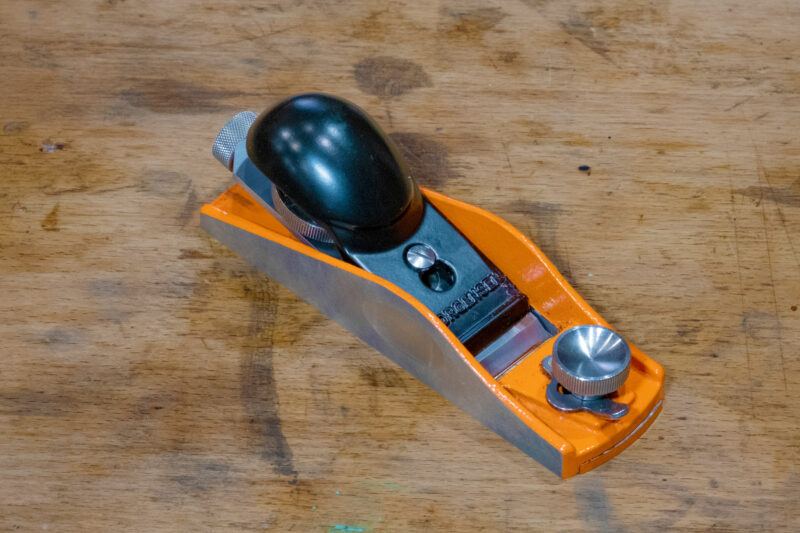 Photographs by the author
Photographs by the authorThe interior of the Jorgensen No. 60-1/2 low-angle block plane is painted the company’s distinctive orange. The edges are smooth, and the lever cap is rounded so that it nestles comfortably against the underside of the operator’s index finger
The Jorgensen company was founded in Chicago in 1903 as the Adjustable Clamp Company. It persevered through two world wars, recessions, and depressions for 113 years, finally closing its doors in 2016. The name endures, but all the products are now made in China.
Once back in my shop I ordered one of the Jorgensen planes for myself and was pleased that the quality of the two I had seen in the summer class was not a fluke. The Jorgensen plane measures 6.3″ × 1.75″, has a 1 3⁄8″-wide blade, and weighs 1.48 lbs. The feel and function of the Jorgensen match that of any of my older No. 60-1/2s. It fits nicely in my hand and the edges are smooth. One notable improvement is that the opening throat locks down, making it less prone to slipping. The ductile iron body is finished in a bright orange. The sides are 90° to the sole, and the sole itself—while not perfectly flat—was well within acceptable tolerances. I polished the bottom and sides with 600-grit wet/dry sandpaper on a thick piece of glass, and each time I sharpen the iron I will continue to polish the bottom of the plane—soon the sole will be dead flat.
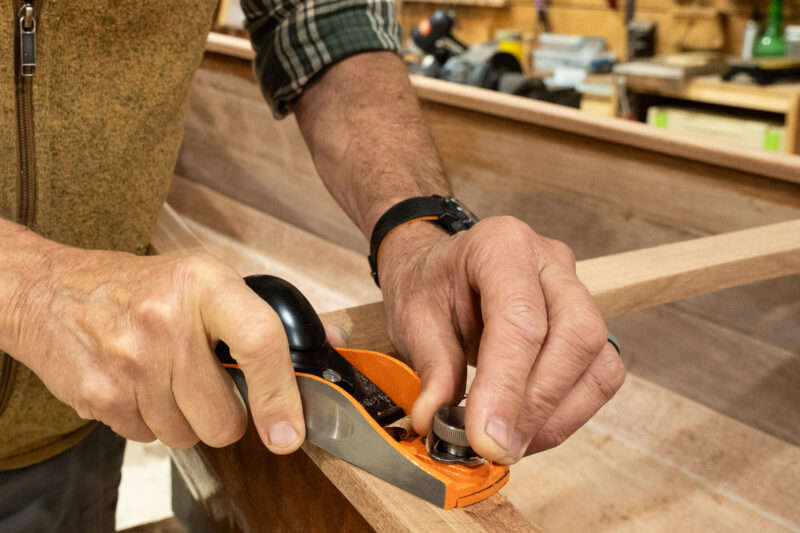
The knob for locking the adjustable throat opening doubles as a hold for the guiding hand, allowing the operator to both direct the plane and apply the necessary pressure to the blade.
The iron was also sharp enough to use right out of the box, which is not typical. The primary bevel was dead-on 25° and only required a bit of polishing on a 1,000-grit water stone to cut really well. The addition of a higher angled micro bevel applied with an 8,000-grit waterstone improved the edge even more, but this is not a necessary step for most woodworking tasks. The edge seems to hold up well while cutting both hard- and softwoods. The manufacturer says the blade is 01 tool steel hardened to Rockwell 60–64; it’s a full 3mm thick—typical of better hand planes.
The mechanism for setting the blade consists of a rectangular slot at the top end of the blade and a corresponding flange at the bottom of the knurled depth-adjuster wheel. It lacks lateral adjustment or multiple slots to attach the blade to the adjuster, but here simpler is better. The overall design has few moving parts. Once the blade has been adjusted, the cap iron’s large, easily operated spinwheel applies pressure on it to hold it in place.
The adjustable throat is a nice feature; it adjusts easily and locks firmly. When planing plank lands for lapstrake boats, and for most general boatbuilding and woodworking tasks, I keep the opening wide most of the time. When flushing up joinery or working on figured wood, I narrow the opening to prevent tearout. In both settings, the plane works well.
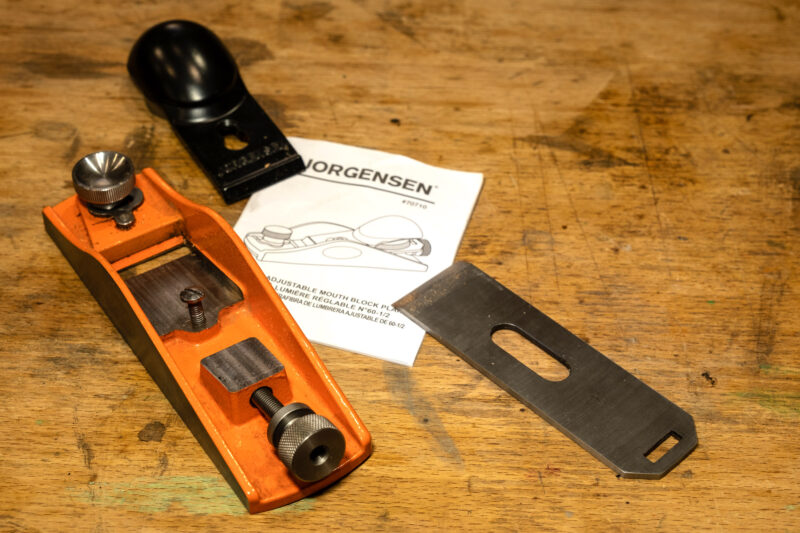
The Jorgensen plane has few moving parts. The blade position is set by a rectangular slot at its top end and a flange at the bottom of the depth-adjustment wheel (in the foreground of this picture). There is no lateral adjustment lever, but the slot is long enough to allow the blade to be oriented with its edge parallel to the sole. The spinwheel, beneath the lever cap, applies pressure to hold the blade in place. The throat opening is easily adjusted and held in place by the front knob.
Overall, the action of the throat, the travel and adjustment of the blade, and the wheel that locks the blade in place are just fine. Each time I sharpen the blade (which might be often as this seems to have become my new everyday plane) I’ll polish and tune-up the surfaces until the action is even better. This inexpensive little plane has impressed me and found a permanent place in my toolbox.![]()
Bill Thomas has been a custom woodworker, designer, boatbuilder, and teacher for over 40 years. He lives and works in South Berwick, Maine.
The Jorgensen #70710 NO. 60-1/2 Adjustable Mouth Low Angle Block Plane is available through multiple online retailers for $34.98.
Is there a product that might be useful for boatbuilding, cruising, or shore-side camping that you’d like us to review? Please email your suggestions.




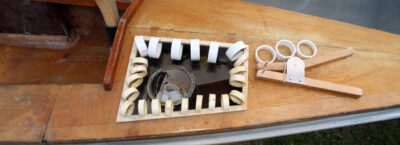

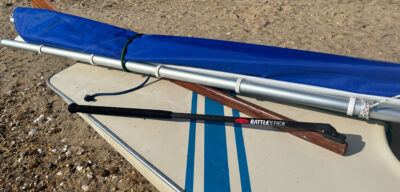

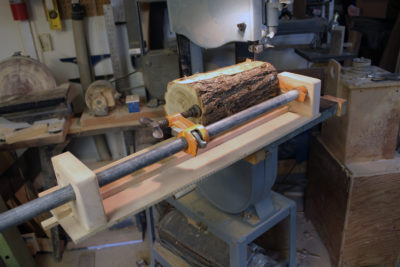
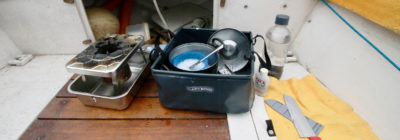

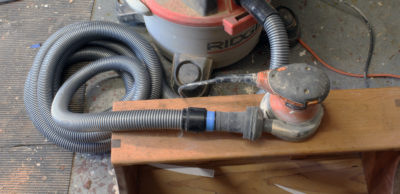
Join The Conversation
We welcome your comments about this article. If you’d like to include a photo or a video with your comment, please email the file or link.